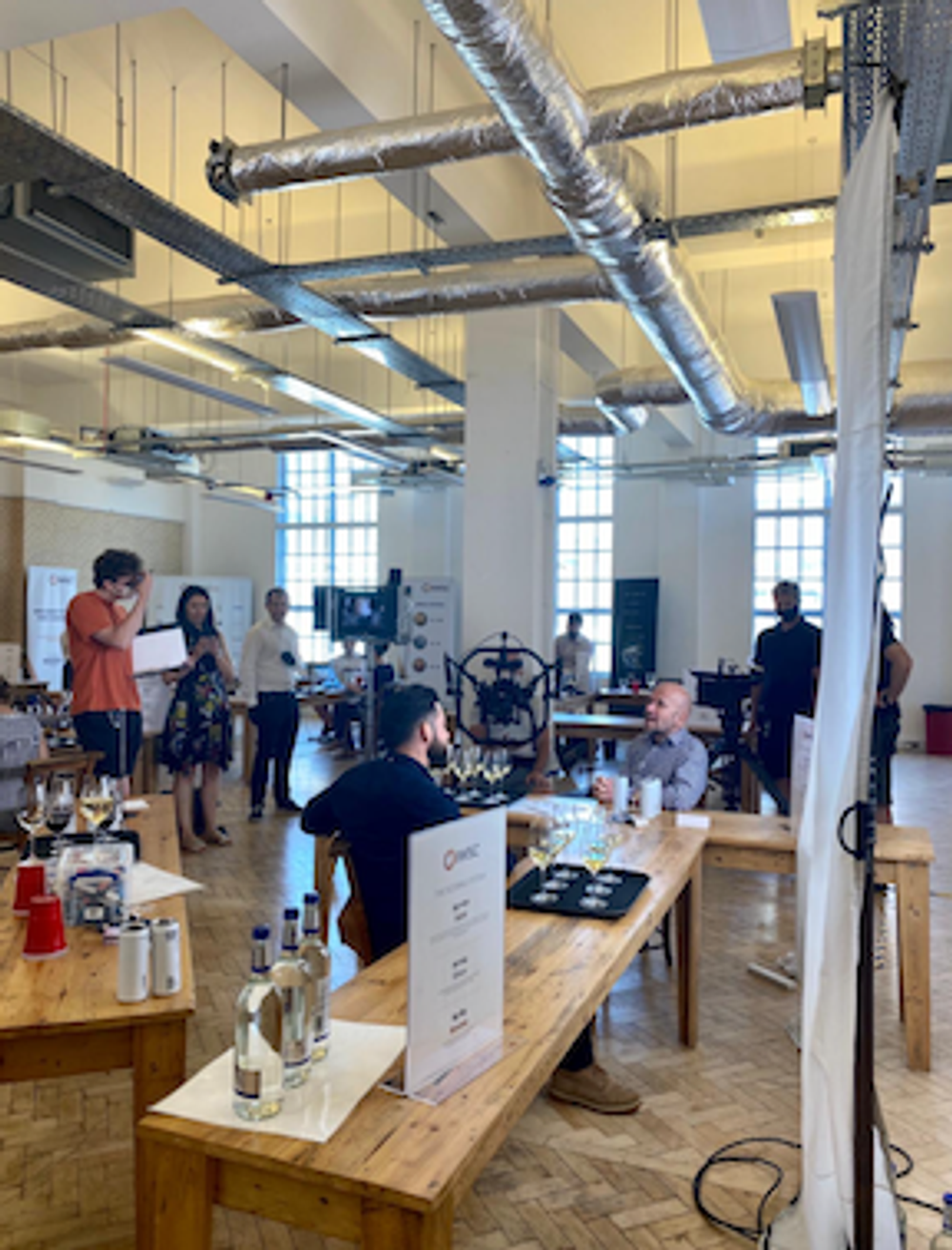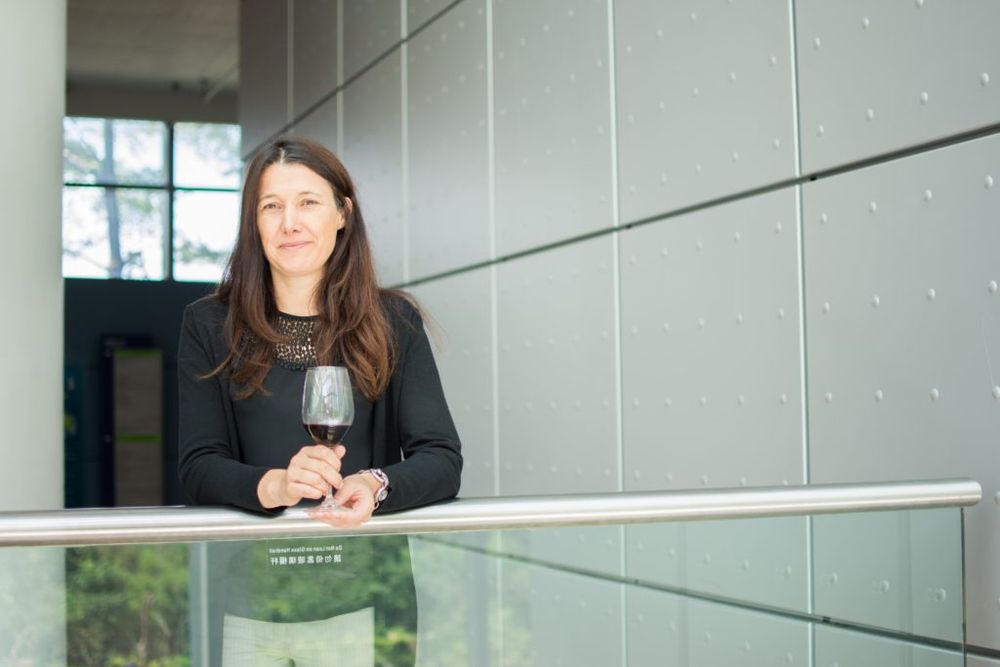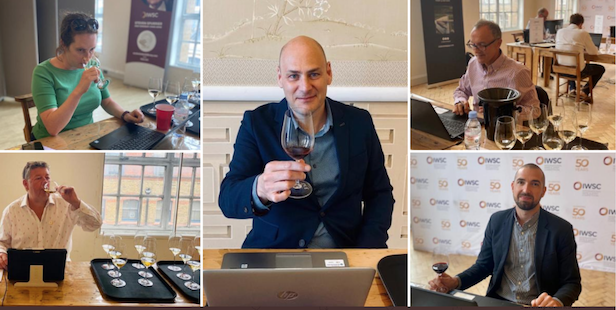“I was expecting our entries for Northern Hemisphere to be significantly down, but in the end it’s only around 5 percent lower, and our spirits entries were actually higher this year,” says fine wine CEO, Christelle Guibert.
“The new normal” must be one of the most overused phrases of 2020. There was a point, during lockdown, where the mere mention of those words made me want to scream, but the reality is that things are very different now, and there are few better words to capture it.
Take wine judging, the way we used to know it: dozens of experts gathered in one place, nattering over coffee and croissants, then sitting close together at tightly packed tables, sipping, spitting, debating, sharing plates of water biscuits, all rounded off with an expansive buffet for lunch. In our new Covid world, it’s unthinkable: a super spreader’s charter.
The backdrop to this year’s awards season could hardly have been less auspicious, the logistical challenges greater than ever, but in its 51st year, the International Wine and Spirit Competition (IWSC) appears to have bounced back with a renewed sense of vigour.

This year’s judging was visited by Joe Fattorini and the Wine Show crew
The IWSC was already undergoing significant upheaval – chief executive of the fine wine division Christelle Guibert was poached from Decanter two years ago to undertake a root and branch revamp of the awards – and this year the Coronavirus crisis appears to have accelerated that process of change.
The wine awards moved from Dunsfold aerodrome in Surrey to London’s China Exchange last year, making it easier for time-starved sommeliers to join the judging process.
This year, it feels different again: for starters, there are fewer daily panels, across a longer timeframe; the panels are smaller, reduced from six members to three; there’s a roaming luminary, a member of the new judging committee, overseeing the process each day to ensure consistency; start times are staggered, with participants given arrival slots to ensure there’s no morning rush; tables are spread across two floors of the venue, with everyone seated around two metres apart; hygiene measures are conspicuous, with the staff wearing gloves and masks; and, like buffets the world over, that smorgasbord is history, replaced with a posh, personal, packed lunch.

Christelle Guibert
“When we contacted our judges, we found that they couldn’t wait to taste wine,” Guibert tells me,
“I think we have put together a really excellent team of judges. Because of the furlough situation, many are able to commit for the full duration which means we have a smaller team, with more continuity.”
“The panels are smaller, but that was always our strategy, with the judging committee to oversee it all. I wanted to find a balance where our judges felt safe and secure, but I didn’t want it to become too clinical.”
“For me, tasting is all about discussion, it’s not a numbers game, so we want to encourage the panels to have a conversation and that’s why we don’t have more than 65 wines (across the day) because we want our judges to give time to the wines. I think it has gone amazingly well.”

Ian Chang, former master distiller for Kavalan Whisky flew from Taiwan to be part of the IWSC spirits judging sessions
Another of Guibert’s reforms to the IWSC has been to the scoring system, with the judging room now emblazoned with pithy descriptions for each tier. “We spent a lot of time working on the wording because first of all we want our judges to think about what a 95 plus (gold) wine is, and then work backwards from there.”
“We are actually really pleased with our entries for Northern Hemisphere,” Guibert says, “I was expecting the entries to be significantly down, but in the end it’s only around 5 percent (lower), and our spirits entries were actually higher this year.” Southern Hemisphere judging will follow next month, in a similar format.
Tastings manager Dimple Athavia had the daunting task of co-ordinating the shipping of samples from around the world, navigating lockdown restrictions that vary from country to country.
“We had to completely forget about our original May deadline (for samples), but frustratingly we could not initially set a new cut off, due to the uncertainty over the government guidelines,” Athavia says.
“The next challenge came when we discovered that the people who had entered, from within a company, had gone on to be furloughed, or even made redundant, so when we were chasing the samples, clear communication was really important.”
“We worked very closely with our partner Sensible Wine Services to ensure that we were able to adhere to all the relevant guidelines,” Athavia says, “and we have had some late entries (due to the logistical challenges) but we have done our absolute best to get every wine tasted.”
As the wine industry grapples with the Covid-19 crisis, Guibert believes awards such as the IWSC are now more important than ever: “Producers still need a way to promote their wines, they need to sell their wines, they realise it is much harder to get them in front of buyers, so they are turning to us for help.”
The North Hemisphere results are announced today (August 19) on the website. To see the winners click here
































